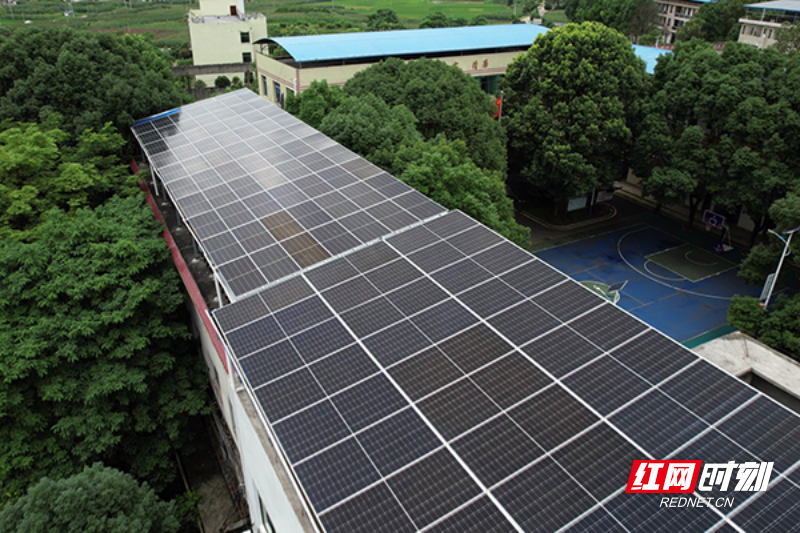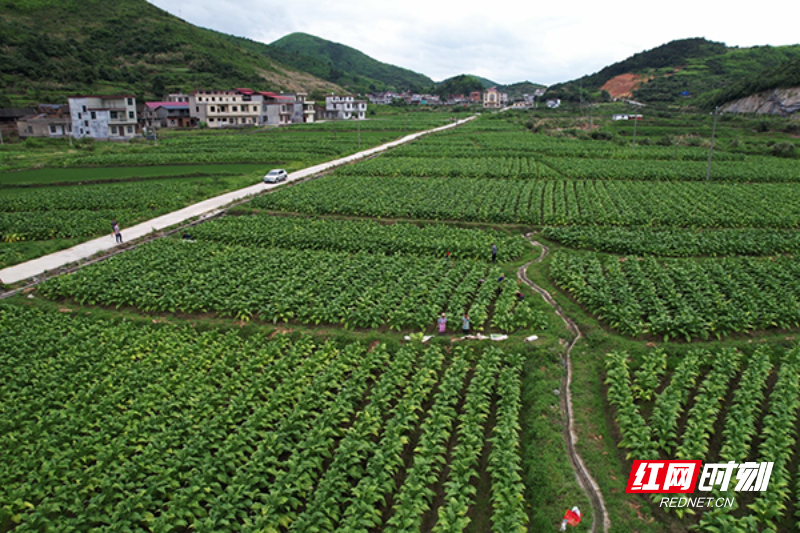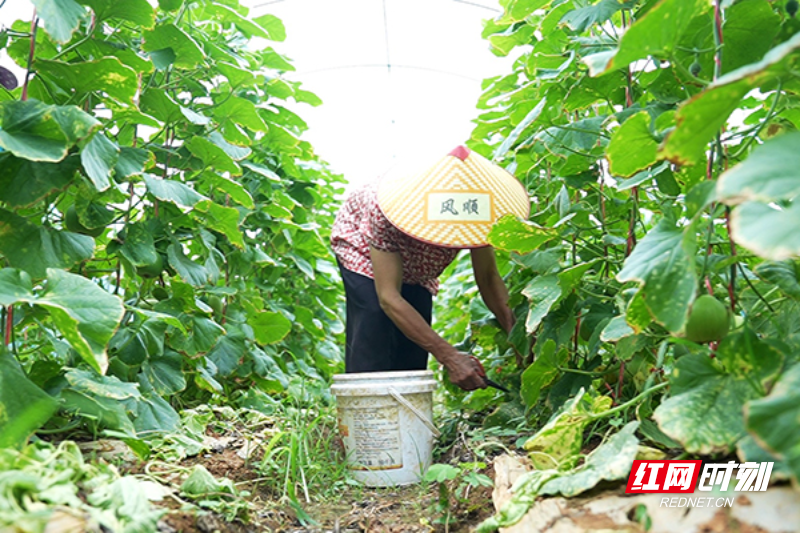Agricultural, PV industries boost economy of relocated villages
2024-06-29
Developing the solar photovoltaic (PV) industry is an important way to help relocated villages strengthen their collective economic income. In recent years, the reservoir resettlement affairs center of Linwu County has built 17 small distributed rooftop PV power stations throughout the county, making PV panels empower the comprehensive revitalization of rural areas.

At the same time, the county government has actively guided the relocated people to develop agricultural characteristic industries to increase income.
Rows of photovoltaic solar panels shine brightly in Huangnidong Natural Village of Shangxiahuang Village, Wanshou Township, Linwu County. These PV panels under sunlight will be converted into electricity which will then be integrated into the power grid and transmitted to other places.
Through a mobile mini program, village cadres can check the current power generation ad revenue in real time.
The village secretary said that the photovoltaic power generation now brings over 100,000 yuan per year, which has greatly helped the collective economy of the village.

Shangxiahuang Village has three resettled natural villages of Huangnidong, Shitouling, and Duimianjiang. Due to the single and small-scale industry, their collective economic income is weak, and the development is lagging behind.
At the end of 2023, small distributed rooftop photovoltaic power stations with an installed capacity of 190 kilowatts were installed in these three natural villages. Each power station can generate 1,500 hours of electricity per year.
The photovoltaic power generation industry has multiple advantages, like being ecologically and environmentally friendly, stable and sustainable income. In recent years, the center continued to invest 6.98 million yuan of funds to build 17 small distributed rooftop photovoltaic power stations, with an installed capacity of about 1,580 kW and estimated annual income of up to 1.05 million yuan.
The resettled villagers were also guided to develop characteristic agricultural industries. A villager from Huangnidong Natural Village has rented more than 200 mu (13.33 hectares) of wasteland for tobacco-rice rotation since 2022.

This year, Huang Huabo’s flue-cured tobacco ushered in a bumper harvest. The tobacco-rice rotation brings the village nearly 60,000 yuan in land transfer rent, over 16,000 yuan in tobacco subsidies, and nearly 80,000 yuan in gig wages every year.
Through industrial assistance, technical training, financial support and other measures, in recent years, many resettlement villages have developed characteristic agriculture.
In Yuantian Resettlement Natural Village of Dianjiang Village, Huatang Township, the local melon base ushered in a harvest, and the local villagers can increase their annual income by thousands of yuan through land investment.
There are 6,017 people relocated from the areas around medium-sized reservoirs in Linwu County during the construction of Changhe and Wanshuidong reservoirs in the 1960s. The population is unevenly distributed, relatively concentrated in Wanshui, Huatang, Shunfeng and Xiyao townships. There are 17 such villages with a population of 100 or more.
After years of efforts, the public facilities such as water, electricity, roads and water conservancy in these villages of Linwu County have been improved. The production and life of villagers have become increasingly stable, and the living environment has greatly improved.
To enable them to master a certain skill, broaden employment channels, and increase income, various types of employment-oriented skill training are conducted every year.
Last year, over 120 relocated villagers received training, with 668,500 yuan of vocational education and training funds distributed and over 20 migrant workers sent out.
“Next, we will continue to improve the public infrastructure of various resettlement villages and improve the living environment. We will promote talent cultivation, drive villagers to learn and master new knowledge and skills, promote employment, encourage them to make their own plans and start businesses. We will also support the development of diversified industries in those villages, and strengthen the village collective economy to ensure the sustainable development.” said Huang Zhuling, director of the center.




